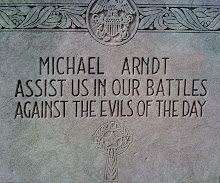McDonald's management philosophy is as simple as its menu. But don't underestimate the effectiveness of founder Ray Kroc's blueprint

Editor's Rating: ![]()
The Good: An uncomplicated look at how McDonald's does it.
The Bad: From the title to the seven principles, there's a lot that's familiar here
The Bottom Line: It's simple stuff—but worth pondering.
Everything I Know About Business
I Learned at McDonald's:
The 7 Leadership Principles
that Drive Break Out Success
By Paul Facella
McGraw-Hill; 223 pp.; $24.95
It would be so easy to snark about Everything I Know About Business I Learned at McDonald's: The 7 Leadership Principles that Drive Break Out Success. For starters, there's the cut-and-paste title. (I thought we learned everything in kindergarten.) The seven habits—er, principles—hardly seem fresh, either. Chapter headings include honesty and integrity, standards, and courage. Then there's the thesis itself: McDonald's (MCD), a fast-food chain dedicated to mass-produced sameness, is the fountainhead of business insights. Who knew?
But that wouldn't be fair. There really is something special about a company that, generation after generation and all over the world, turns high school kitchen help into both millionaire franchisees and corporate executives. And author Paul Facella has the firsthand experience to know how it's done. He started at McDonald's as a 16-year-old crew member and retired 34 years later as a regional vice-president.
Facella, who now runs a management consultancy, interviewed every McDonald's chief executive still alive, as well as seemingly everyone else in top management over the past couple of decades. He uses their recollections and his own to show how a corporation with some 1.5 million employees in 118 countries is able to pass along bedrock beliefs and behavior. His writing is as simple as the McDonald's menu. He flags each new point with a subhead and ends each chapter with a checklist of "key learnings." Even a brand-new trainee couldn't miss the moral of these stories. Naturally, the book (published by McGraw-Hill , which like BusinessWeek, is a unit of The McGraw-Hill Companies) is a quick read.
Facella notes—accurately, I should add, as someone who has reported on Big Mac for years—that much of the McDonald's way can be traced to company founder Ray Kroc and to Fred Turner, a crew person at the company's first drive-in, outside Chicago, who quickly became Kroc's right-hand man and eventually succeeded him as chairman and CEO. Kroc and Turner demanded a lot from employees. Unlike many bosses, though, they never considered themselves too important to perform even the lowest task, such as picking up trash.
Others followed their example, including Don Horowitz, a former chief legal counsel. In his chapter on standards, Facella writes that Horowitz laughingly recalled a time when he and his wife stopped en route to a formal reception to pick up litter outside a McDonald's they happened to pass. "I can't imagine any officer going into a restaurant and seeing a piece of paper and hesitating to pick it up," Paul Schrage, a retired chief marketing officer, told Facella. "No questions—it was just something that was ingrained in you."
Facella remembers how Kroc taught him another lesson when they first met in 1978. Facella was then operations director for McDonald's outlets in metro New York and not yet 30, and Kroc was escorting him and a colleague to dinner at the 21 Club in Manhattan. As they got into the limousine, Facella moved to take one of the backward-facing fold-down seats, assuming Kroc would rightfully take the plush back seat. Kroc stopped him. "You are my guest tonight," he said. "You sit in the comfortable seat." Facella writes: "That pretty much blew me away. It was a mindset I hoped I could incorporate as my own."
Facella begins the book's final chapter, on the subject of employee recognition, with a quote from Kroc: "I like to get people fired up, fill them with zeal for McDonald's, and watch their results in their work." If McDonald's does anything better, it may be how well and often it rewards workers. The best crew members are singled out every month as outstanding employees. Managers might also give an on-the-spot raise. The hardest-working managers, in turn, might win a vacation and, more important, a shot at owning their own McDonald's. And the very top performers worldwide are feted once a year with their spouses at the President's Award gala in Chicago—and given a passel of stock options. At McDonald's, praise is always given in public and, as I've witnessed myself, is always heartfelt.
This is all kindergarten stuff, really: Work hard, play fair, and you'll succeed. But then again, a burger and fries is simple fare, too.



No comments:
Post a Comment